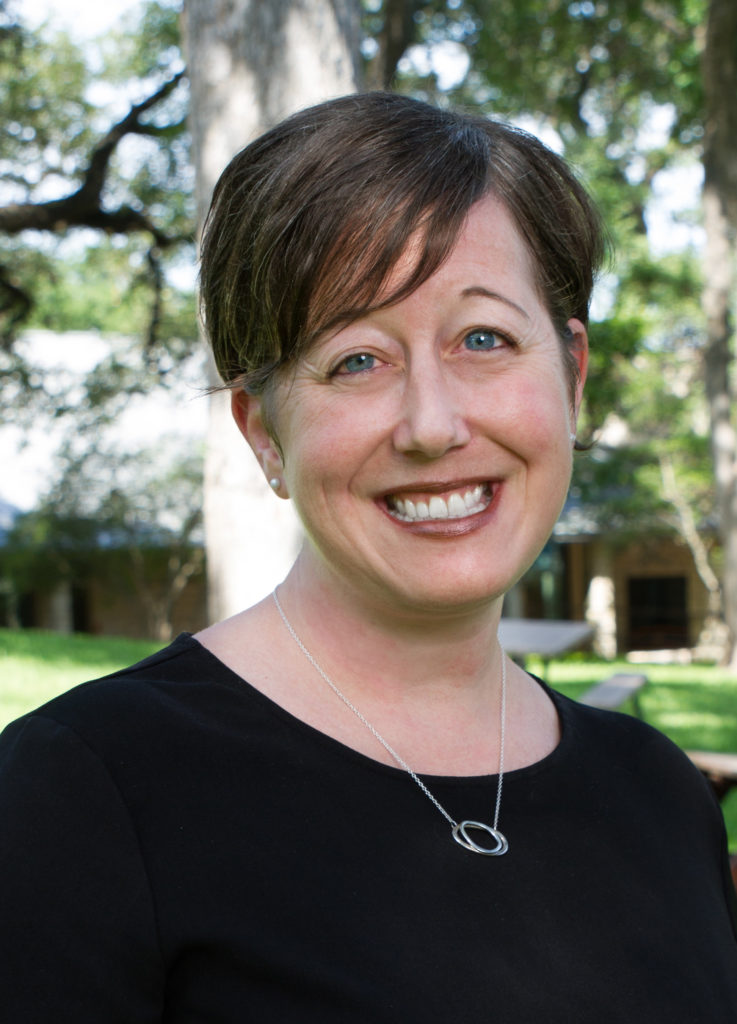“Are you sure CACREP-accreditation’s essential? We’re going to have to make a lot of changes…” That was my first response when director Rev. Dave Scheider proposed the idea of seeking the highest level of accreditation. At the time, I had been teaching in our masters of counseling program and loved it. The classes were small, the faculty were supportive, our Austin campus was a serene haven in a grove of live oaks, sheltered from the buzzing University of Texas campus next door.
Would achieving CACREP-accreditation mean losing everything I loved about our existing counseling program — everything that made it such a unique place to study and teach? I was skeptical. But I also understood the reasons Dave wanted us to go for it. CACREP is the gold standard for counseling programs. Since 2011, the Veterans Administration, along with Tricare, the insurance carrier for military personnel and their families, has refused to hire or accept as providers Licensed Professional Counselors who did not graduate from a CACREP-accredited program.
Because of San Antonio and Fort Hood, central Texas is home to a large veteran and active duty military population, and most veterans cluster in urban areas like Austin. Texas boasts the second highest veteran population in the entire country, outranked only by California, and ranks the national highest per capita. As service members return home from combat in Iraq and Afghanistan and leave the service or remain on active duty, 40% meet the criteria for PTSD, anxiety, and/or depression and are in need of mental health support. With the growing need for mental health counselors, and a shortage of CACREP-accredited programs, central Texas is facing a potential workforce crisis.
LPC’s are uniquely positioned to provide evidence-based trauma treatments such as EMDR, CBT, and Mindfulness-Based Stress Reduction, etc.
Years ago, my first internship as a counselor was at the VA serving vets recovering from trauma. I felt nervous and unprepared. Since then our field has made great advances in understanding how to treat PTSD, and LPC’s are uniquely positioned to provide evidence-based trauma treatments such as EMDR, CBT, and Mindfulness-Based Stress Reduction, etc. Caring for those who served our country at cost to themselves and their families is an important value of ours.
Eventually, we looked at all the potential benefits to central Texans in need of mental health care, and we became convinced it was worth the effort to seek the highest standard of accreditation. We wanted our students to graduate qualified to provide healing and treatment to veterans, active duty personnel, their families, and community members suffering from traumatic stress. Then a generous foundation that wished to be anonymous funded us for three years as we prepared for CACREP. This gift allowed us to create a program that remains extremely low cost for our students.
We equip our counseling graduates to attend to all aspects of the human being — mind, body, and spirit.
As a seminary, we have a long tradition of exploring spirituality as a psycho-social strength. We equip our graduates to attend to all aspects of the human being — mind, body, and spirit — in a way that supports the unique culture of each client. Researchers tell us trauma is a “crisis of trust” begging four questions: 1) Can I trust myself? 2) Can I trust others? 3) Can I trust the world/universe? and 4) Can I trust God?
Our spiritually-integrated Master of Arts in Clinical Mental Health Counseling Program prepares counselors to walk with clients through these difficult questions. My hope is that our graduates never feel like they are practicing mental health counseling “with one hand tied behind their back”, becuase human beings are beautifully complex. We need counselors equipped to maneuver whatever the client wishes to explore in their journey toward health and wellness.
The essentials of our peaceful, serene Austin, TX campus and program have remained the same.
My prediction was accurate in one sense: CACREP accreditation has brought several changes to our program. Now we have an entire course dedicated to evidence based practices in crisis and trauma counseling. Compared to other programs, our students receive twice the field placement hours prior to graduation. We also developed a unique partnership with a counseling agency in East Texas to provide paid post-graduate internships to select graduates serving underserved populations.
Even with these changes, the essentials of this peaceful learning community remain unchanged. Our student body is small, our faculty are attentive and know each student personally, and our oak trees are a favorite spot to gather for lunch or a studying with friends. I love it here and feel fortunate to teach in such a dynamic program while serving the mental, emotional, and spiritual needs of diverse clients in our community.
I’m thankful for the doors CACREP-accreditation has opened for our counseling graduates and the clients they serve.



